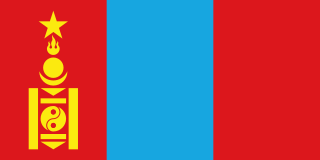
The 1904 Summer Olympics were an international multi-sport event held in St. Louis, Missouri, United States, from 1 July to 23 November 1904. Many events were conducted at what is now known as Francis Field on the campus of Washington University in St. Louis. This was the first time that the Olympic Games were held outside Europe.

At the 1904 Summer Olympics, seven wrestling events were contested, all in the freestyle discipline. Then known as catch wrestling, it was the first time freestyle wrestling was featured at the Olympic Games, as the first Olympic wrestling contests in 1896 had been in the Greco-Roman style. Weight classes also made their first appearance. The sport continues to be in the Olympic program to the present day. The event also doubled as that year's Amateur Athletic Union (AAU) Catch Wrestling Championships.

Wrestling at the Olympic Games first appeared at the first modern Olympics, in the form of Greco-Roman wrestling, held in Athens in 1896. Wrestling would appear at every Summer Olympics held since then, with the exception of the 1900 Summer Olympics when wrestling did not appear on the program. Freestyle wrestling and weight classes both made their first appearance at the 1904 Summer Olympics. Women's freestyle wrestling competition was first held at the 2004 Summer Olympics.
Robert "Bob" Samuel Curry was an American wrestler of the early twentieth century.

According to the official statistics, one gymnast, Adolf Spinnler, and one wrestler, Gustav Thiefenthaler, from Switzerland competed at the 1904 Summer Olympics in St. Louis, United States.

Mongolia competed at the 1968 Summer Olympics in Mexico City, Mexico. 16 competitors, 12 men and 4 women, took part in 26 events in 4 sports.
The light flyweight was the lightest freestyle wrestling weight class held as part of the wrestling programme at the 1904 Summer Olympics. It included wrestlers weighing up to 105 pounds (47.6 kg). It was the first time the event, like all other freestyle wrestling events, was held in Olympic competition. Four wrestlers competed.
The bantamweight was the third lightest freestyle wrestling weight class held as part of the wrestling programme at the 1904 Summer Olympics. It included wrestlers weighing 115 to 125 pounds. It was the first time the event, like all other freestyle wrestling events, was held in Olympic competition. Seven wrestlers competed.
The featherweight was the middle of seven freestyle wrestling weight class held as part of the wrestling programme at the 1904 Summer Olympics. It included wrestlers weighing 125 to 135 pounds. It was the first time the event, like all other freestyle wrestling events, was held in Olympic competition. Nine wrestlers competed.
The lightweight was the third heaviest freestyle wrestling weight class held as part of the wrestling programme at the 1904 Summer Olympics. It included wrestlers weighing 135 to 145 pounds. It was the first time the event, like all other freestyle wrestling events, was held in Olympic competition. Ten wrestlers competed.
The welterweight was the second-heaviest freestyle wrestling weight class held as part of the wrestling programme at the 1904 Summer Olympics. It included wrestlers weighing 145 to 158 pounds. It was the first time the event, like all other freestyle wrestling events, was held in Olympic competition. Ten wrestlers competed.
The heavyweight was the heaviest freestyle wrestling weight class held as part of the wrestling programme at the 1904 Summer Olympics. It included wrestlers weighing over 158 pounds (71.7 kg). It was the first time the event, like all other freestyle wrestling events, was held in Olympic competition. It was held on Friday, October 14, 1904 and on Saturday, October 15, 1904. Five wrestlers competed.
Isidor Gadar "Jack" Niflot was an American wrestler who competed in the 1904 Summer Olympics. He won a gold medal in the freestyle bantamweight category. Niflot was born in Russia and raised in New York, New York. He was later a long time Sullivan County, New York resident.

George Nicholas Mehnert was an American wrestler who competed in the 1904 Summer Olympics and 1908 Summer Olympics, winning the gold medal at both Olympics.
The men's freestyle 48 kilograms at the 1996 Summer Olympics as part of the wrestling program were held at the Georgia World Congress Center from July 29 to July 30. The gold and silver medalists were determined by the final match of the main single-elimination bracket. The losers advanced to the repechage. These matches determined the bronze medalist for the event.
The men's freestyle 52 kilograms at the 1996 Summer Olympics as part of the wrestling program were held at the Georgia World Congress Center from August 1 to August 2. The gold and silver medalists were determined by the final match of the main single-elimination bracket. The losers advanced to the repechage. These matches determined the bronze medalist for the event.
The Men's Freestyle flyweight at the 1968 Summer Olympics as part of the wrestling program were held at the Insurgentes Ice Rink. The flyweight was the lightest weight class, allowing wrestlers up to 52 kilograms.
William L. Nelson was an American wrestler who competed in the 1904 Summer Olympics. At the 1904 Summer Olympics, he won the bronze medal in the freestyle wrestling flyweight class. Nelson wrestled for St. George's AC in New York, New York.
Robert Hugh Peery was an American wrestler. He won a gold medal at the 1951 Pan American Games, and he competed in the men's freestyle flyweight at the 1952 Summer Olympics. He also worked as a dentist for more than 50 years.

The men's freestyle flyweight competition at the 1964 Summer Olympics in Tokyo took place from 11 to 14 October at the Komazawa Gymnasium. Nations were limited to one competitor. Flyweight was the lightest category, including wrestlers weighing up to 52 kilograms (114.6 lb).






